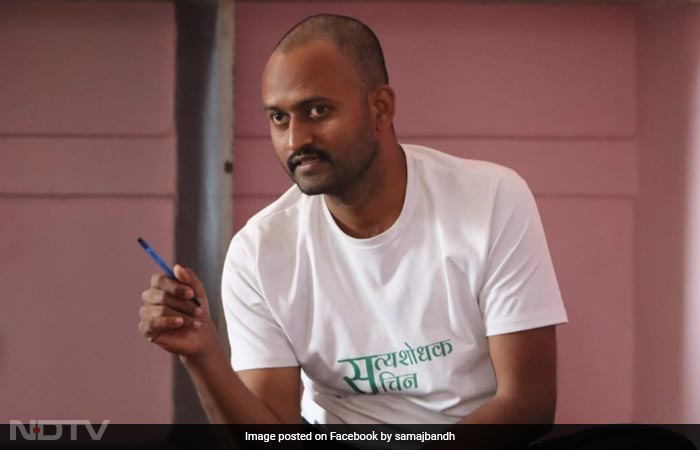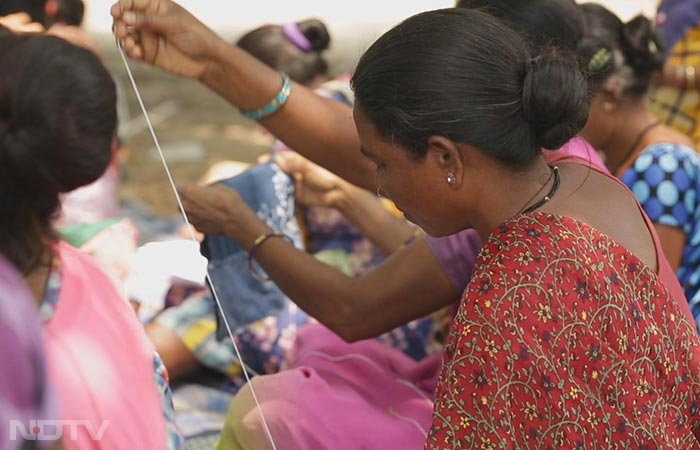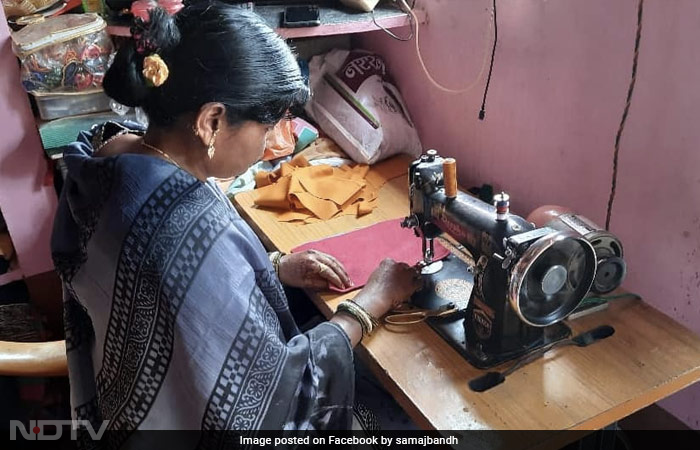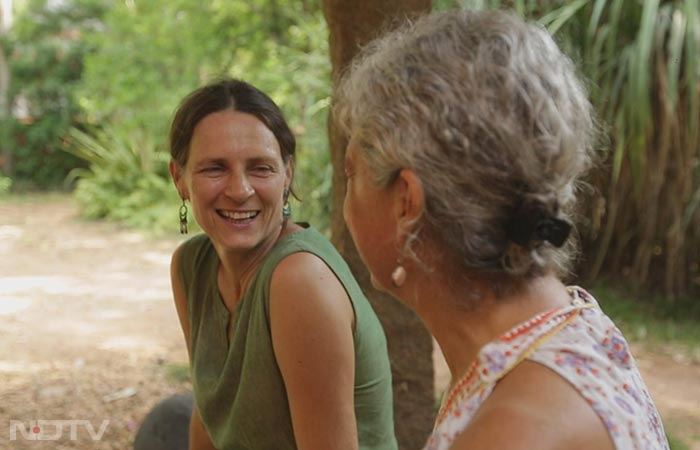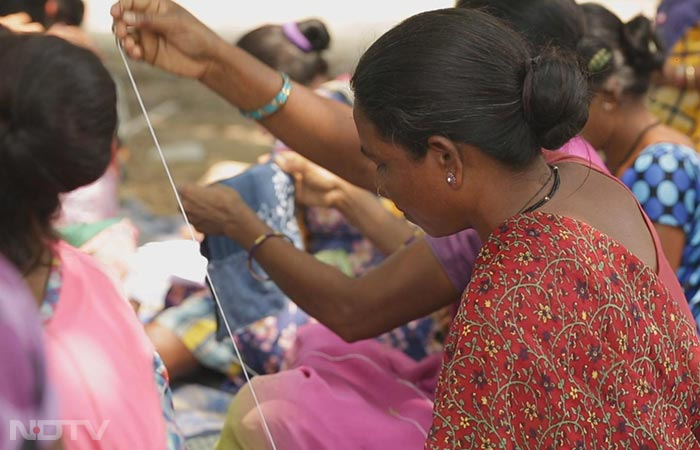NGO Samajbandh And EcoFemme Are Destigmatising Menstrual Hygiene Among Rural And Tribal Women
Our old clothes hold the solution to a very challenging public health issue - poor menstrual hygiene. The lack of access to affordable, hygienic menstrual products has caused girls to drop out of school, severely limited women's participation in public life, along with severe health issues. But, there are people who are trying to solve the twin problem of fabric waste and inaccessibility to menstrual hygiene products by making cloth pads. In this photo story, we feature NGO Samajbandh and EcoFemme, a social enterprise who are working with the women and for the women.
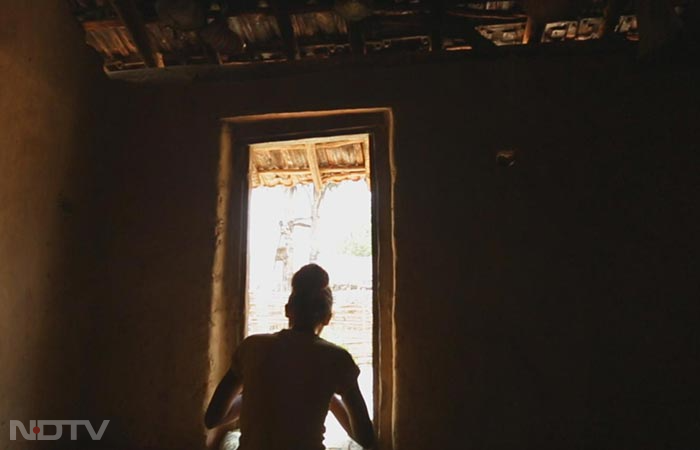
The lack of access to affordable, hygienic menstrual products has caused girls to drop out of school, severely limiting women's participation in public life, not to mention, causing serious health problems. But a solution to this lies in our old clothes.
What is an old t-shirt or kurta for us, can make all the difference to a woman with no access to a sanitary pad like women of the Madia tribe in Gadchiroli, Maharashtra.
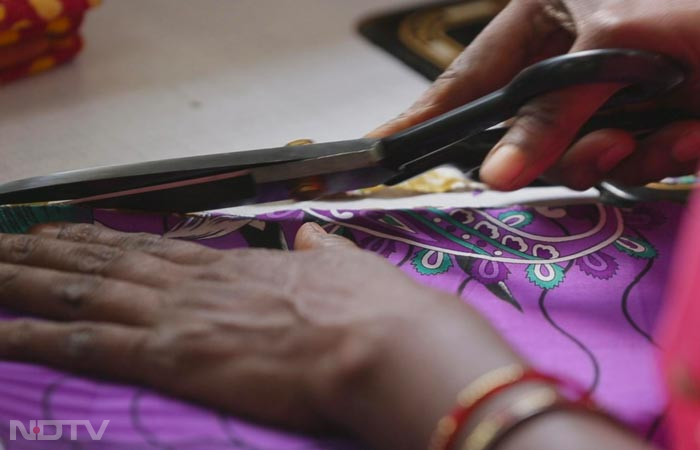
The older women of the Madia tribe never wore sanitary napkins or pads during menstruation or Kurma as it is referred to in the local language. But today, these older Madia women distribute kits of cloth pads to other women and girls of the tribe. Not just this, but women of the Madia tribe are also involved in making cloth sanitary napkins.
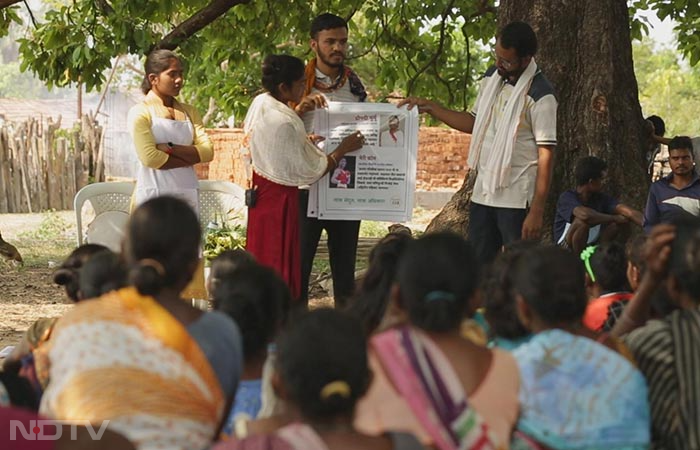
Sachin's own mother was married off at the age of 13 years and started menstruating two years after marriage. She had no knowledge of her own body, let alone menstrual health. She had her first child when she was just 16, and had to go through a hysterectomy at a comparatively young age. As a student, Sachin himself would participate in clothes donation drives for tribal women, when he realised there was a bigger issue at hand.
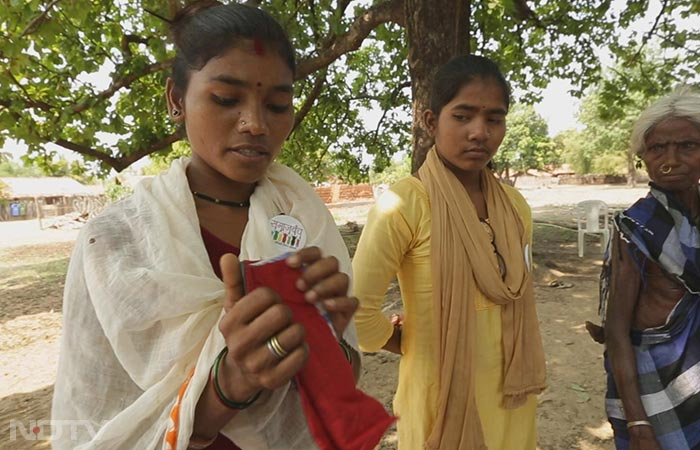
Talking about the idea behind using old clothes to make pads, Sachin says, "Women lack awareness about menstrual health. These women cannot afford the menstrual absorbent products available in the market. The taboo around menstruation prevents them from bringing these products home. With all this in mind, we decided to use clothes to make sanitary pads from it."
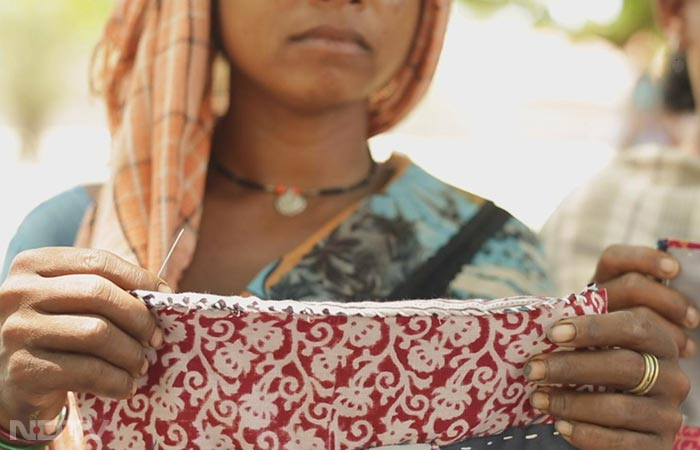
Once collected in Samajbandh's Pune office, the clothes are sorted by fabric into hosiery, denim, cotton and synthetic clothes. While cotton and hosiery help keep the pad soft and absorbent, denim comes on as the last layer to help keep the Asha pad leakproof. The synthetic cloth is used to make bags for the kit, with each kit containing six menstrual pads. These pads are then washed, dried and put through ultraviolet rays for proper sanitisation before being sent to women like the Madia tribal women in Gadchiroli.
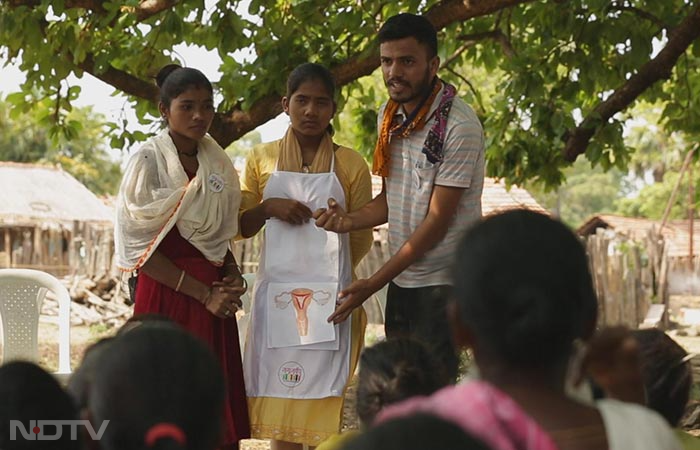
Sachin has distributed Asha Pads to more than 40,000 tribal women and covered around 22 districts of Maharashtra, in conducting awareness sessions. Samajbandh volunteers gather the Madia women together to explain the what, how and when of a menstrual cycle. Women are also trained on how to make their own pads.
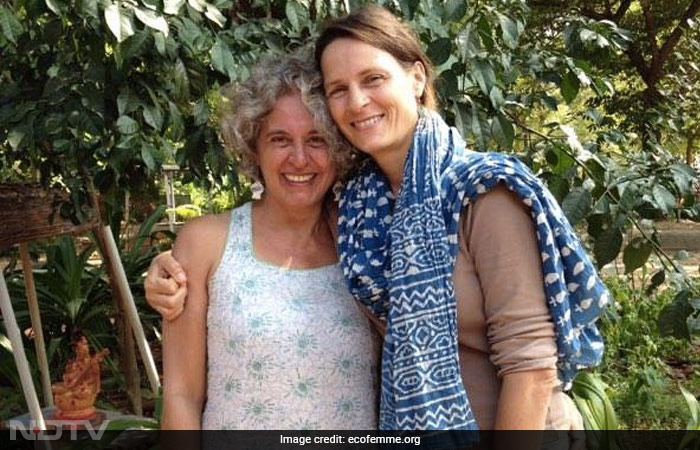
Similar to NGO Samajbandh, Eco Femme, a women-led social enterprise, is making cloth pads that are good for women's bodies and also for the Earth. Started in Auroville, Pondicherry in 2010, by Kathy Walkling and Jessaminjh Miedema, EcoFemme aims to create environmental and social change through revitalising menstrual practices.
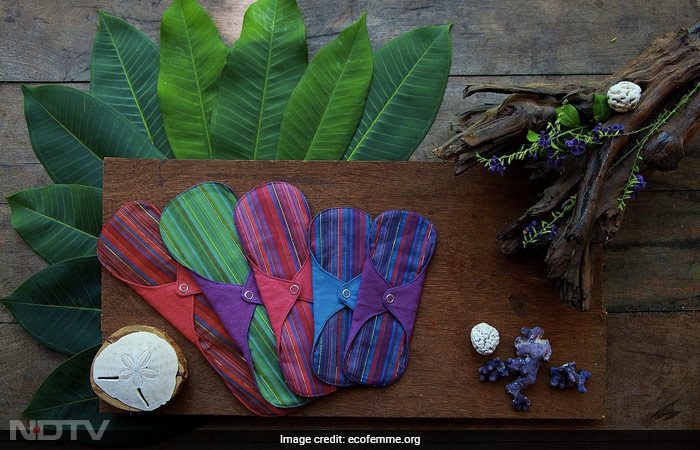
EcoFemme primarily makes cloth pads. They also make cloth nappies for babies as disposable baby nappies that contain plastic are also a big source of pollution. The cloth pads made at EcoFemme use certified organic cotton and the money generated through their sales funds EcoFemme's non-profit activities.
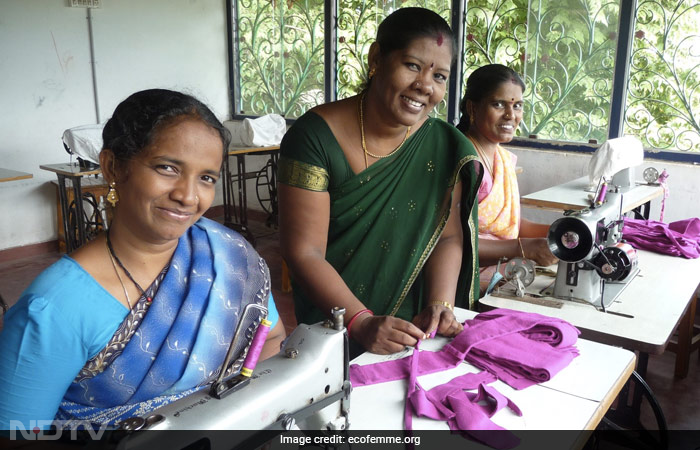
To ensure girls and women from low-income backgrounds have access to cloth pads, the team of EcoFemme has created two programmes - one is 'Pad For Pad'. It means every pad sold abroad brings in donations which enable the team to provide a pad for a girl. Through this, EcoFemme has reached out to more than 75,000 girls in government schools.
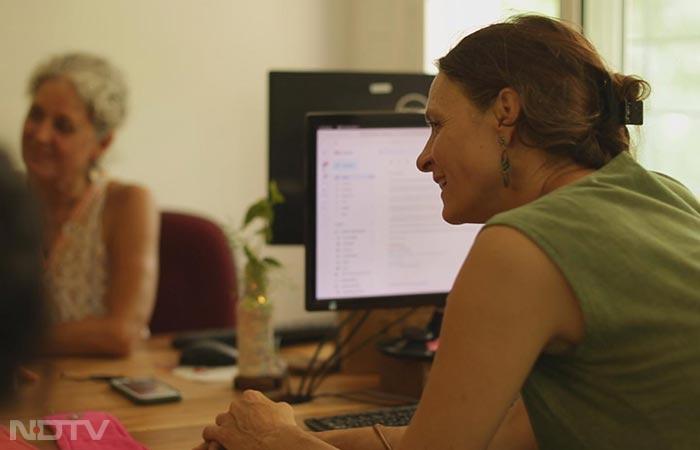
Making anything from cloth is bound to generate a lot of waste and this is the cloth and fabric waste that eventually ends up in landfills but not at EcoFemme. No scraps of cloth left over from the production of pads or nappies are ever thrown away. Instead, they are used to make keychains, re-cycled paper cards and bags designed by designer label Anushka Anasuya and made by Sadhna Foundation - another NGO engaged in providing employment to women.
GIVE YOUR CLOTHES HERE
Goonj
| Delhi | 011- 41401216 |
| Bangalore | 9663798026 |
| Chennai | 9354937428 |
| Hyderabad | 9640433473 |
| Kolkata | 8287969740 |
| Mumbai | 9082884374 |
| Patna | 8287969768 |
| Rishikesh | 7055016761 |
| Kochi | 0484 297 7602 |
Clothes Box Foundation
Gurgaon, 48 Paras Trade Centre, Gwal Pahari, Gurgaon – 122003
Contact Number: 07838371356
SWaCH, Pune
Spicer College Road, Ward No. 8, Siddarth Nagar Society, Aundh, Pune, Maharashtra 411007
Contact Number: +91-9765999500
Share At Door Step
Bangalore
Contact Number: 8884784742
The Cherian Foundation
No. 38 Malony Road, T. Nagar, Chennai – 600 017
Contact Number: 044-40404444
For You
Ranchi
Contact Number: +91 651 2481777
Forever Foundation
A-2, Vijay Path, Tilak Nagar, Jaipur, Rajasthan 302004
Drop Location: Survey No. 166, Kathputali Nagar, Amrudo Ka Bagh, Near. Seva Sadan, Jyoti Nagar, Jaipur, Rajasthan 302005
Incredible Himachal
Shimla
Contact Number: 91-9816999599
Clothes Bank
Goa
Contact Number: 94233 11180
Prayas ISD
#4-1-21, Prayas Institute for Social Development, Champa Estate, Boggulakunta, Tilak Road, Abids, Hyderabad -1 Andhra Pradesh
Contact Number: 9866335488




